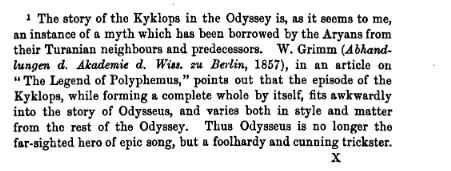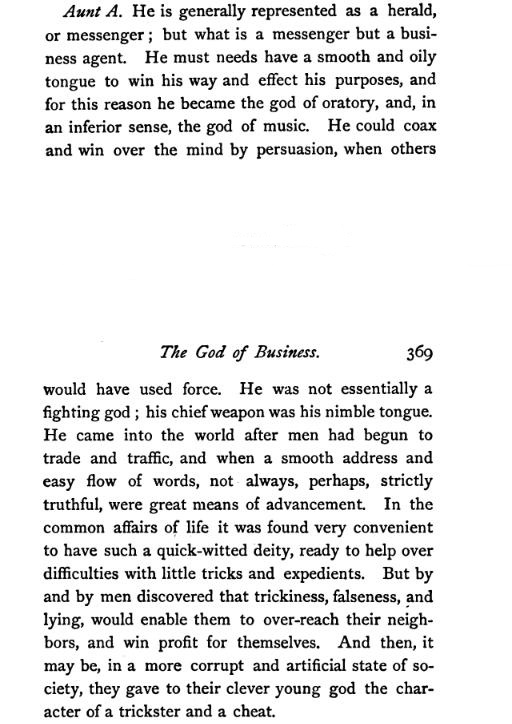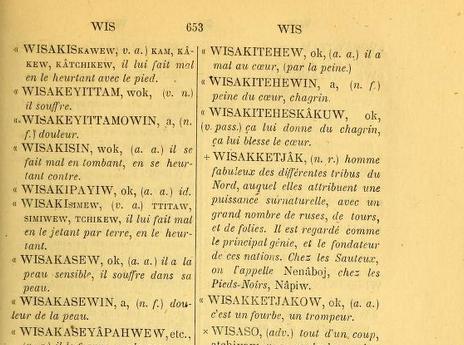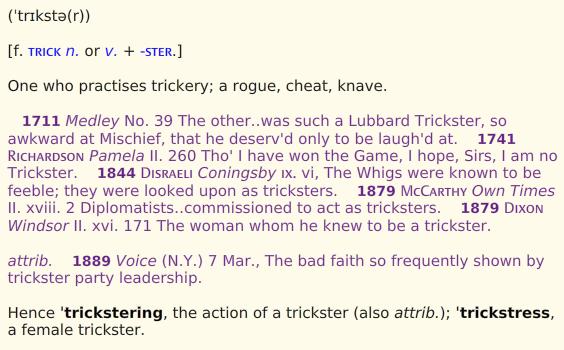Origins of the Trickster August 22, 2015
Author: Beach Combing | in : Modern , trackbackBeach has recently become intrigued by the Trickster, those wonderful figures found in world mythology who pass beyond the normal rules laid down by society and cause fun and trouble by turns. Tricksters are perhaps particularly associated with Amerindian myths but they are everywhere. For example, there seems, in the Christian tradition, to have been the idea that Peter was something of a trickster: perhaps inspired by his ambivalent and inconsistent role in the Gospels and the book of Acts. Robin Hood sometimes comes close in the British tradition. However, a question for intellectual history. When was the term ‘trickster’ first used in this mythological sense? The best discussion of this appears in George P. Hansen’s The Trickster and the Paranormal, a very unusual book. On p. 433 we read:
Rickets states that Daniel Brinton coined the term trickster in his 1868 book Myths of the New World. However, Lewis Hyde reports finding no mention of the word in any of the three editions of that book. Gill and Sullivan state that in 1885 Brinton published an article ‘The Hero-God of the Algonkins as a Cheat and Liar.’ They assert that ‘Brinton cited an entry from Father Albert Lacombe’s Dictionnaire de la Langue des Cris (1878)’ saying that ‘this is probably the first time the term was used to suggest a general category.’ Unfortunately, Gill and Sullivan do not indicate where Brinton published that article. In the May 1885 issue of The American Antiquarian Brinton published a 3-page paper titled ‘The Chief God of the Algonkins, in His Characters as a Chief and Liar’ and did use the word ‘trickster’. He also used the word in his The Lenâpé and Their Legends; With the Complete Text and Symbols of the Walam Olum, A New Translation and an Inquiry Into Its Authenticity (p. 130). The original publication date of that book appears to be 1885. Some reprints state that the book was originally published in 1884, but neither the Library of Congress catalog nor the National Union Catalog lists an 1884 edition.
Hansen is serious in bibliographic matters. Some points here though. ‘The Hero-God’ appeared in Briton’s Essays of an Americanist in 1890. It is a rewriting of the earlier article ‘The Chief-God’ and the confusion between the two is understandable given the almost identical titles. The word ‘trickster’ does not, as Hyde noted, appear in Myths of the New World: word search confirms this. Included at the head of the post is the relevant passage from Lacombe which dates to 1874 not 1878. It is sometimes stated that Lacombe gave the word ‘trickster’ in French. He could have, he would have found the term useful, but failed to.
Now is 1885 really the first dated use of trickster in this mythological sense? Two possible exceptions follow, both from comments on Greek myth. First there is Sayce, The Principles of Comparative Mythology, 369 which also dates to 1885 and could conceivably have been influenced by Brinton. (How do you determine when in a given year a book was published?)

Much more interesting in every way is though this scan from Larned, Old Tales from Grecian Mythology Retold, 369, published in 1876. Does Larned create a category? Aunt is talking about Hermes. (Two pages run together here for convenience).

Can anyone go further back? drbeachcombing AT yahoo DOT com
For the sake of science Beach includes here a scan from the OED. The oldest attestation of the word appears to be 1711.
29 Aug 2015: Bruce T writes ‘A very interesting post! I would like to know if anyone has done any research into what tricksters are typically gods of. I have a vague recollection that Loki (surely the arch-trickster!) was originally a god of the hearth or fire. And the nature of fire would make his evolution into a trickster almost a certainty.’ Then Bruce: ‘If I were looking for the source in northwest Europe, I would look at other names for the Germanic/Scandinavian demi-god Loki. In the Celtic world, variations of names for the classic trickster Merlin would be my starting point. In southern Europe there is a Black/ Red man trickster who was later associated with Satan during the witch hysteria of the late Medieval/early Modern period. The Black Man is an old northwestern African/Saharan/ Sahelian figure depicted most often as a smith with both benevolent and malignant powers. I suspect this belief moved into southern Europe with the Moors during the Islamic period, but that’s really not my field of expertise. He could have arrived during the Roman or Carthaginian period, who knows? In the Med we’ve got good old Pan, trickster deluxe. Definitely worth looking in to other variants of his name both from the time of the early Greeks, into the period after rise Christianity as the religion of the Roman Empire in late Antiquity, and what Pan morphed into in later times. Now to the Middle East, where have that old serpent in the garden. He’s still worshiped to this day by the Yazidis as a Prometheus figure under the name of Sheitan. We know good and well what the Abrahamic faiths did with that name. It might be worth a look into the Mesopotamian texts to get a look at the root terms for Sheitan, later variants, and his other names. Now to the Indo-Europeans, whoever they were. I’d dig into both early Hittite and the early Iranian religious records for trickster types. As those are the few extensive writings we have for the early Indo-European languages, they would have to be a primary source. Sanskrit may be a bit of a help on the Indo-European front, but it wasn’t written down until much later than the Iranian and Hittite texts. You could also take a a whack at the few bits of Mittani we have, the oldest known written Indo-European language, but the records are sparse and from what I understand, mostly Hittite copies. I guess there is Joseph Campbell, but the man was a bit of whack job.’ Others have written on asking about Loki: how was Loki described. Good question.




